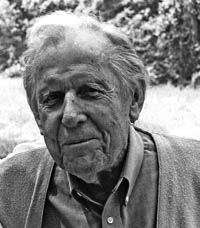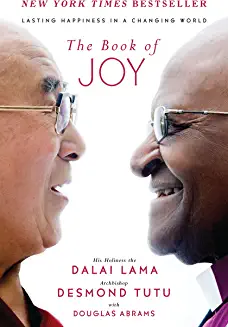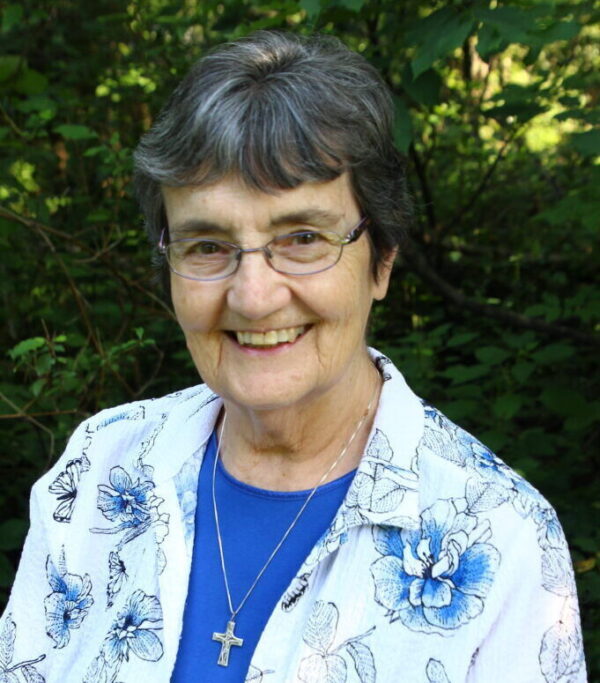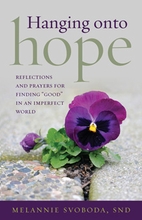I remember sitting in Sister Mary Luke Arntz’s “History of the English Language” class many, many, many years ago at Notre Dame College. Sister posed this question to us: “What part of speech do you think is the most important part of speech in the English language?”
We thought for a few moments and then gave our opinions. Some of us thought nouns were the most important because they name everything. Others said verbs were because they show action–or inaction. (I stood with the verbs.) Sister listened for a few minutes and then said gently, “Sometimes I think prepositions are the most important part of speech.”

“Prepositions?” we said incredulously. Sister explained, “Yes, because prepositions show relationships—and the way things are related to each other is very important in life.”
I learned that day that we don’t always give prepositions the respect they deserve. After all, so many of them are teeny weeny: on, in, of, to, by, at, up. Others are longer, but we seldom stress them when we speak: with, for, from, toward, under, into, over, across, through, within. There are over 150 prepositions in English! And yes, we know they’re significant. We know there’s a big difference between saying, “She is on the rock… she is under the rock… she is inside the rock.” But that may be as far as our appreciation goes.
I recalled Sister Luke’s class as I sat in a scripture class at Duquesne University many, many years later as my beloved scripture professor, Father Demetrius Dumm, spoke about the sentence, “God is with us.” He said, in English we use the preposition with. But the original meaning says much more than our word with conveys. That sentence also means God is for us… God is on our side… and even God is in our corner. In other words, God is more than simply with us. The original sentence conveys how God is with us.

(1914-2006)
Father Thomas Berry wrote extensively on theological and ecological issues. In fact, he described himself not as a theologian; but a geologian. (When I just typed that word, my spellcheck alerted me that it wasn’t a word! Berry created that word to express more accurately who he was!) This sentence of his is one of the most important ones I’ve read from his vast writings: “We are not creatures on the earth, we are creatures of the earth.” The change of that teeny weeny preposition makes a profound difference in how we view ourselves in relationship to our entire environment! Are we merely on the earth OR are we of the earth, that is, intimately interconnected with everything else on this planet?

There are many other examples of how the prepositions we use are highly significant. Is the Kingdom of God in us… with us… or among us? Father Demetrius stressed among. That preposition connotes the fact that our faith is not a private affair… that the Kingdom begins here on earth… that no one has a monopoly on the Kingdom… that we must work with one another to bring about the reign of God. Here’s another example. In the past, I thought of my ministry mainly as working for God. But over the years, I’ve shifted my perspective. Now I view my ministry (whether writing or giving retreats or whatever) as working with God. That shift is more than mere semantics. It stresses my connectedness with God… my dependence on God… my acknowledgement that the work I do is God’s work and not solely mine… and how lucky I am to be able to have God’s help and strength in everything I do.
For reflection:
Is there anything in today’s reflection that caught your attention?
Can you give any other examples of the importance of prepositions?
Pay attention to the prepositions you encounter–especially as you read the scriptures or even the newspaper. Did you notice anything? Did you find any prepositions that you found particularly important?
PS: I request your prayers for a retreat this week for our SND USA Golden Jubilarians for 2023. There are four of us on the team leading the retreat from July 24 through August 2 at the Lial Renewal Center in Whitehouse, OH (near Toledo). All of us are grateful for the support of your prayers. Thank you!
Our video today is “The Creation Song. Written by Kate Simmonds and Mark Edwards, it is from their album “One Day.” Enjoy the incredible visuals. And hear Our Creator God saying these words to you today.
I welcome your comments below. Your responses are a vital component of this blog. Thank you!







18 Responses
The visuals of this song are incredible & awesome! How can anyone argue against the existence of our Creator!
The saying,” we are of this earth” is profound, & coupled with the above video, I was struck by how people need to be stewards of our planet. This world is a gift from God & everyone has a responsibility to tend to the fragility of the earth. God entrusted us to preserve & protect it “yesterday, today, & forever” until the final reckoning.
Thank you for this thoughtful blog & song that reminded me how grateful I am for the beauty of nature, day or night, that leaves no doubt of God’s love for us.
You couldn’t have said it better! I absolutely agree but would never have found the words.
Melannie what a beautiful song It really moved me to respect creation more.
What a creative critical thinking assignment Sister Mary Luke Arntz gave to your class. The discussions must have been so interesting as you all answered her question. I would never have thought of the preposition as so important in “relationship.”
Abraham Lincoln knew the impact of prepositions when he described government as “of the people, by the people and for the people.” Thanks for the reflection and the music!
It reminds me of the British Historian James Burke’s “Connections” television shows. It’s from a more scientific point of view but it’s the connections that make it. Thank you for another riveting blog Sr. Melannie 🙂
Cool greetings from Maine!
Dear Sister Melannie: Look forward to your inspiring blogs every week! Have fond memories of Sr. Luke when she was Principal of NDA. Is Sr. Luke still with us? God within Me spoke to me today!
Stay safe, healthy and keep praying!
Dear Nancy, How nice that you have fond memories of Sr. Luke when she was principal at NDA. She was later president of Notre Dame College too. She passed away a number of years ago after living a rich and loving life. She is remembered fondly and gratefully by many of us… Thank you for reading my blog and for writing! Sr. Melannie
Dear Melanie ♥️
What a Wonderful way to begin a Monday!
The Beautiful photos and Uplifting words surely Enkindled My Heart and My Soul Sing 💖
I will be rewatching this All week!!!
Thank You as always for Your Gifts of Inspiration!
Have a Joy Filled week!
Rosemary LeVoyer
So. Beautiful it touching my heart and soul.
Hi Melannie!
Wonderful! I, an English teacher, will never think of prepositions the same way again!
In her most recent book, By Lamplight, Genevieve Glen has a wonderful reflection on the Eucharistic Doxology “through him, with him, and in him…” In it, she too reflects on prepositions and their importance in terms of our relationship with God. Definitely worth reading and praying with…over…about… (hmmm, I ended that sentence with a preposition!)
Another home run! Thank you, Melannie.
PS “St. Patrick’s Breastplate”
PPS Martin Buber’s opening words of “I and Thou”–“in the beginning was relationship.”
Another essay that really stopped me so that I had to sit down. As a retired English teacher, I so agree with your “discovery.” Thank you, Sister, for opening our eyes to a small, but so important, way to understand our relationship to God and to his world.
Thank you Sister, as always. 🌻
So interesting to me personally as recently in my texting communications I’ve been changing prepositions to clarify what I’m trying to say.
Blessings as you continue to share your gifts‼️
A beautiful testiment to God’s all encompassing and unlimited love for each of us. The visuals, the music, the words all convey beauty, peace, joy, power, strength and love beyond our imagination. Thank you for a moment of meditation and reflection on the love of our heavenly Father.
I’m not getting your emails…really miss them. My email is correct. help please.
I am not getting the sunflower e-mails
Loretta Pardini